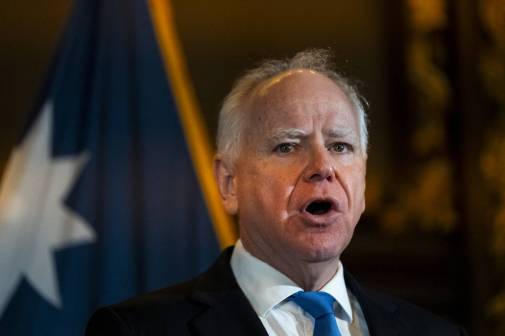State insights with Microsoft VP Mike Donlan

Michael Donlan has a unique perspective on the challenges facing government. He spends his time working with state and local government executives on a wide range of challenges — from managing tight budgets and leveraging cloud technologies to tackling cybersecurity threats, using big data and creating new scenarios for mobile government workers. In his role as vice president for Microsoft’s U.S. state and local government, Donlan pulls from his 20-plus years’ engineering and business experience in the U.S. public sector and across the globe.
Back in the U.S. for more than a year and a half, Washington, D.C., native Donlan combines his work as Microsoft’s worldwide government leader and chief technology officer with his time leading Microsoft’s public sector business in Asia. His focus now is leading a team that works with customers from the smallest towns to the biggest states to help them use technology to better deliver results and services for citizens.
StateScoop caught up with Donlan on a recent visit to the Microsoft Technology Center in Reston, Va.
Between ever-changing obligations from the federal government and the policy changes in the states themselves, Donlan said he’s seeing governments with many of the same issues.
“Managing and mastering new technology at the state and local government level is all about balancing the need to streamline services, keep costs contained, and modernize systems, all while meeting the variety of security and privacy compliance requirements that exist,” he said.
To help cities, states and counties navigate these unusually tricky waters, Donlan said Microsoft is making every effort to make its solutions fit within as many of these different cloud regulatory requirements and certifications as possible, which isn’t an easy feat.
As an example, Microsoft worked with regulators across multiple states to ensure Microsoft’s Office 365 solution meets the latest Federal Bureau of Investigation Criminal Justice Information System Security Policy requirements. Because Microsoft stands behind Office 365 with contractual commitments to address the FBI’s standards, law enforcement agencies across the country can confidently use Office 365 in the cloud to handle sensitive CJIS data.
Donlan said, “Building cloud technologies at his level is difficult and it requires a significant investment of time and effort with each state, but it is our goal to provide the best government cloud compliance in the industry.”
Donlan further extrapolated on the privacy and security needs of state and local governments, noting that beyond CJIS requirements, state governments are being challenged to handle a wide range of other components.
“Leaders are looking for ways to minimize challenges and remain in accordance with the many other regulations in place, but they’re also looking to spend time working on projects that better utilize modern technology,” Donlan said. “We have over a million government users of Office 365 across the U.S. state and local government, and we believe that our privacy and security commitment is central to why states and localities are moving to the cloud with Microsoft.”
Notable state and local customers who have migrated to or are deploying Office 365 range from Mecklenburg County, NC, the City of Chicago, and the City of San Jose to states such as New York, Minnesota and Texas.
Another way Microsoft is helping state and local governments is with its Windows 8.1 operating system, as the company works with its network of partners to build out a myriad of Windows-enabled devices for the marketplace. Donlan said state and local governments are using an array of different computing devices specifically designed for government scenarios, from laptops to tablets, and that Microsoft is committed to helping state and local governments and their employees identify the best devices for their unique needs.
“Our hardware partners are constantly adding new form factors that are specifically designed for government work,” Donlan said. “Tablets that are ruggedized, have TPM chips that allow for full data encryption, and support two factor authentication are important factors in enabling governments to realize the new potential of cloud with new mobile devices.”
Another big initiative in the state and local government space for Microsoft has been the CityNext campaign, which aims to help government agencies apply technology in support to become true 21st-century cities. From transportation, to health and human services, to justice and public safety, to energy and water, customers are using Microsoft’s big data and cloud computing solutions to increase operational effectiveness and efficiency.
For instance, in the area of justice and public safety, the Pennsylvania Criminal Justice System implemented a Unified Case Management application built on Microsoft Dynamics CRM to provide a common platform and enable information exchange among several departments. By providing streamlined, up-to-the-minute data, case workers, probation officers and jail guards all have access to the same information, eliminating the need to call the probation office or search files for individual warrants. Ultimately, the safety of officers and citizens is improved this way.
“For us, it’s not about giving customers a new system; rather, it’s about helping them use modern technology in ways that make them smarter and do new things with less cost and complexity,” Donlan said. “There are opportunities like this all over the country where the right tools and technology solutions can make a big difference. This is where we are helping to make an impact.”






